ISDEF conference: we are developing not a product, but a business
On the last weekend of September in the Moscow region of Vinogradovo, which is 1 km from Dolgoprudny, the “heart” of MIPT, our 16th annual conference of the Russian-speaking Association of IT-businessmen ISDEF (Independent Software Developers Forum) will be held.
ISDEF is a top-notch IT business club with no formalities or superfluous pathos. 15 years ago, it began as a huge get-together of all grocery “software developers” in the autumn near Moscow, overgrown with “meat” of reports and masterclasses. People come to us for ideas to develop their business, especially for export, because here you can “hold for a button” other owners and tops who have already succeeded in their niche.
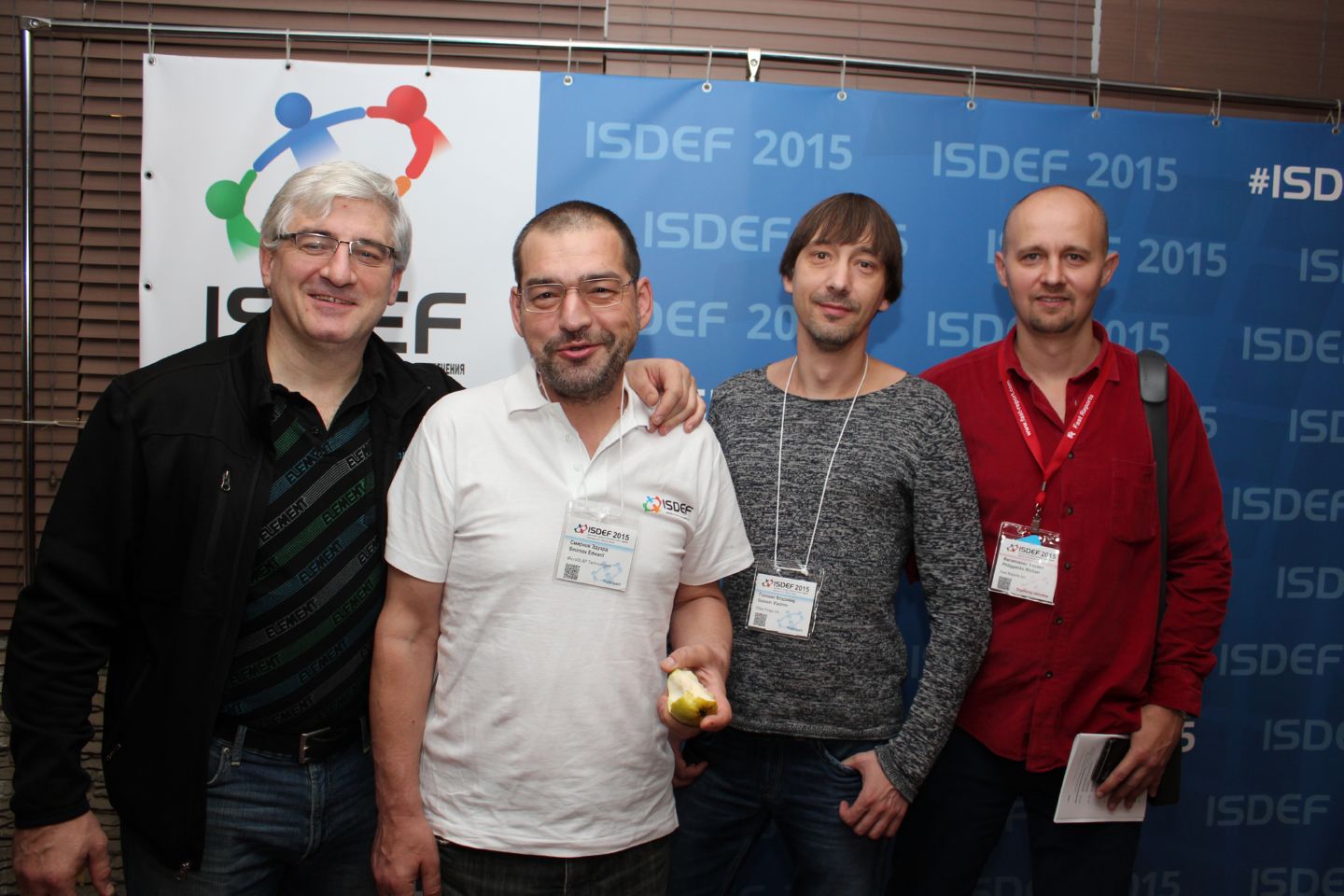
')
Three years ago we published an inspiring (at least, ourselves) post about what ISDEF is . Now tell you what will happen this fall.
(From the author: I personally arrived for the first time in 2008 as the commercial director of agnitum , vendor of Outpost security solutions, when Natalya Kasperskaya, then the general director of our main competitor, Kaspersky Lab, told us about working with partner sales channels abroad - how to enter the country on their hands and when to “squeeze.” This year, something similar in the modern context will be told by former LC representative for Spain and Portugal Hovhannes Mikhailov).
Many, especially former freelancers and current IT outsourcing companies, are moving away from the product development distance in the early stages, while others try to enlist a life-buoy from the outside in the form of grants, subsidies, and other accelerators. But is there enough knowledge? ISDEF solves the problem of “pumping” with knowledge and determination to “swim out”. The conference is focused on “self-funded startups” - on entrepreneurs who build their business not on strangers, but on their earned money. A community of 300 IT entrepreneurs together looking for solutions to tricky cases of moving into new markets, rejecting or introducing new technology platforms, and everyone is not averse to sharing their experience with others.
We have the majority of participants from the “grocery” IT companies, who imagine the process of development and marketing of the product, but there are enough “service workers” who either help the development of the products or themselves stare at what niche to bring their own (not “customized”). ") Development. There is an opinion that those who want to develop their business independently abroad simply have to travel to ISDEF in order to more easily solve the problems of growth - growth both from scratch and when scaling up a business.
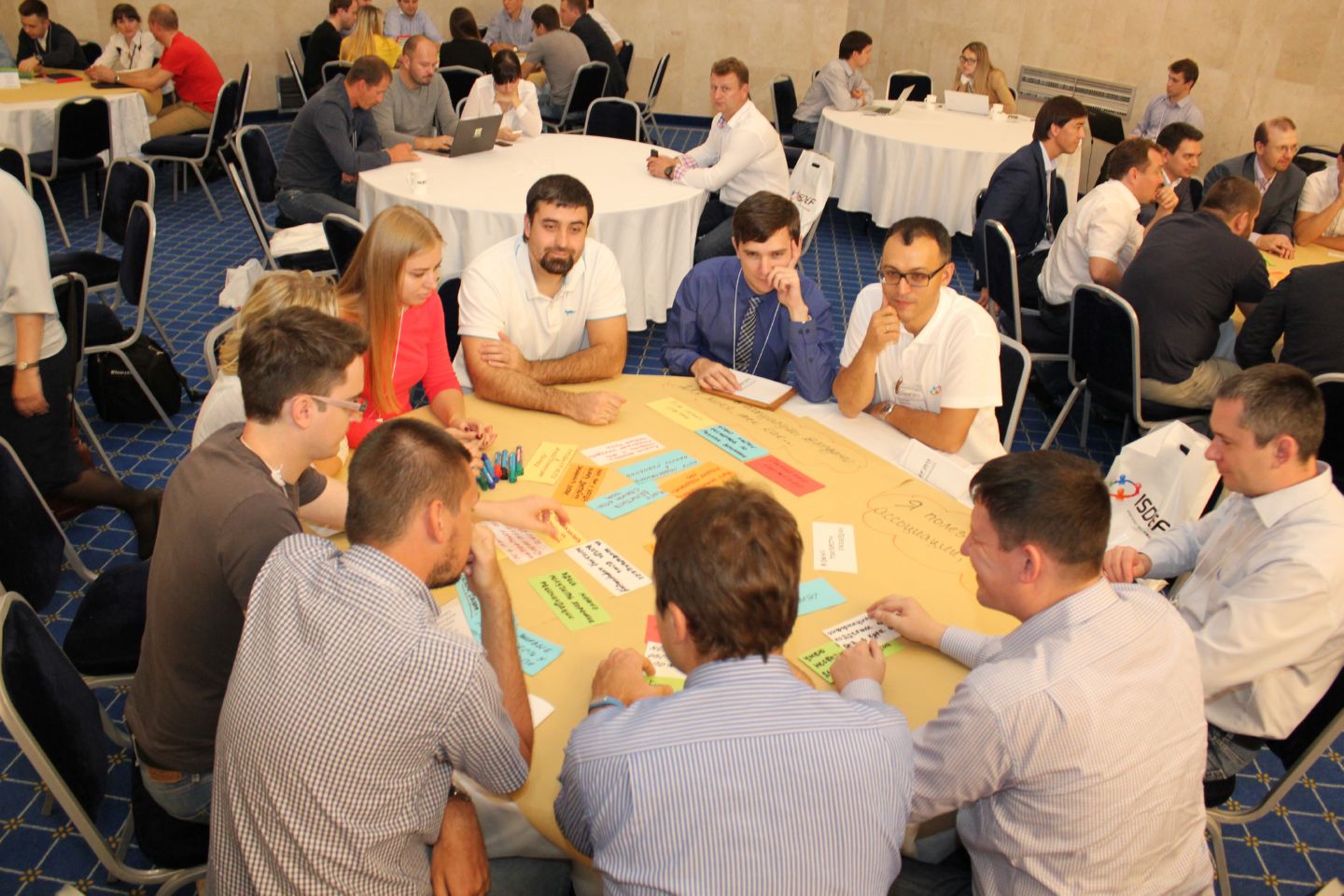
So, the “products” of ISDEF successfully compete with Adobe (in the areas of electronic document management and distance learning), Symantec (in the field of information security), Oracle and 1C (in products for database developers, CRM and ERP), and other leaders in the classical niches of IT products; lead in new markets with “smart iron” platforms (IoT, medtech, fintech) ... “Swimming” in the “pool with sharks” is obviously not easy, but becoming a similar “shark” in going to world markets is doubly difficult, not relying on someone else's experience . Having a “grocery” IT business in Russia, in the EU, in America, in Asia is a risky path, because markets are changing rapidly, and trade in the IT sector is becoming more and more regulated.
That is why there will be almost no desk theorists at ISDEF 2017 (almost). If business growth opportunities are discussed in general terms, they immediately try on their situations. It discusses the features of marketing and sales of software, aspects of the relations of owners among themselves and with employees, international sales and their pitfalls - and involves both old-timers Habr and startups who have had a “pound of a choke” in world markets (for example, rapidly growing alconost , ITsumma and erlyvideo , more classic PVS-Studio and Bolide Software, see Andrey2008 and> bolide ), little-known dollar millionaires from among independent developers with niche solutions. Legal optimization issues receive a lot of attention, because it becomes key.
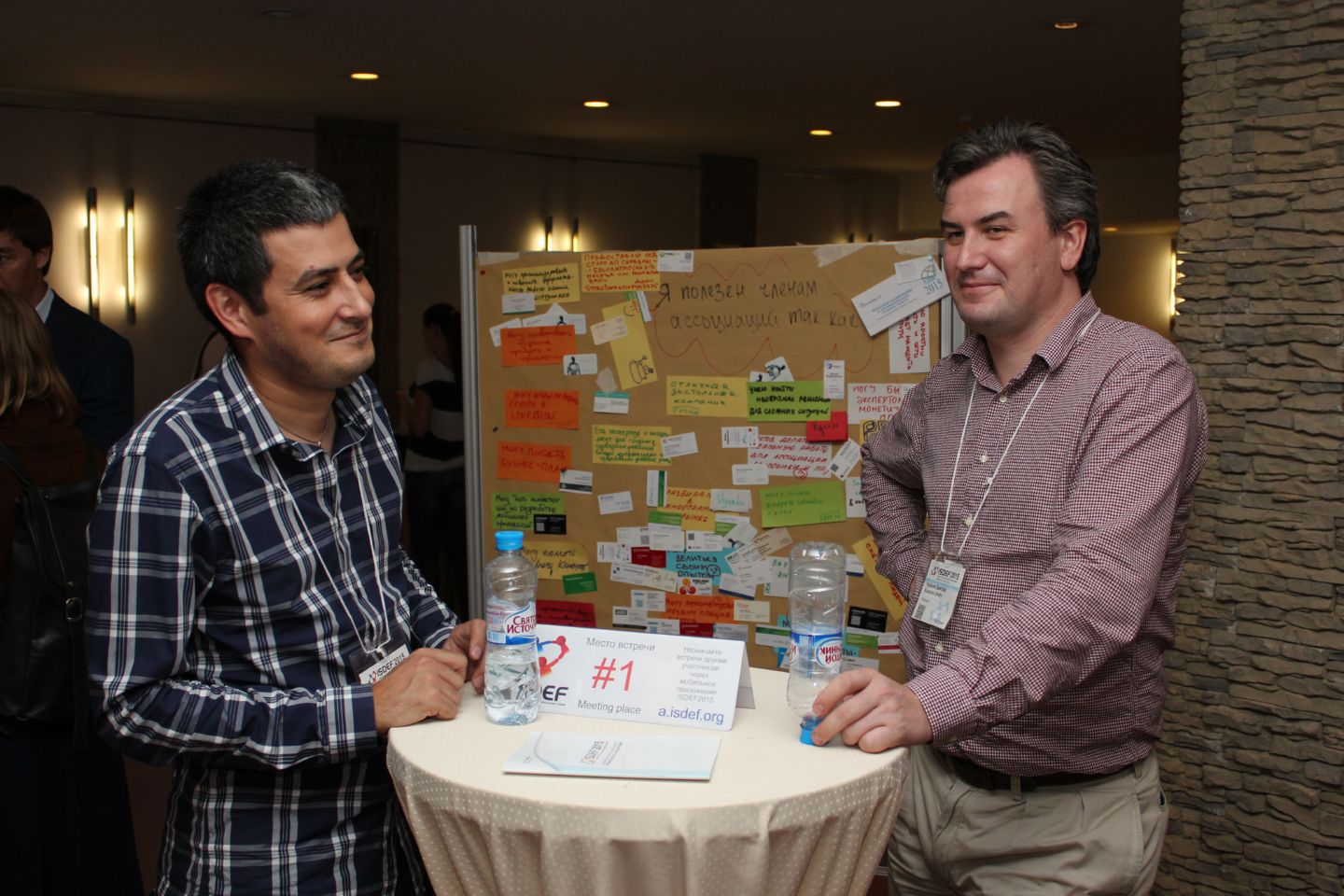
Each of the ISDEF sections is represented by a wide range of speakers with presentations on various topics. Some of them:
Bonus successful case studies on the introduction of innovations in Russian startups.
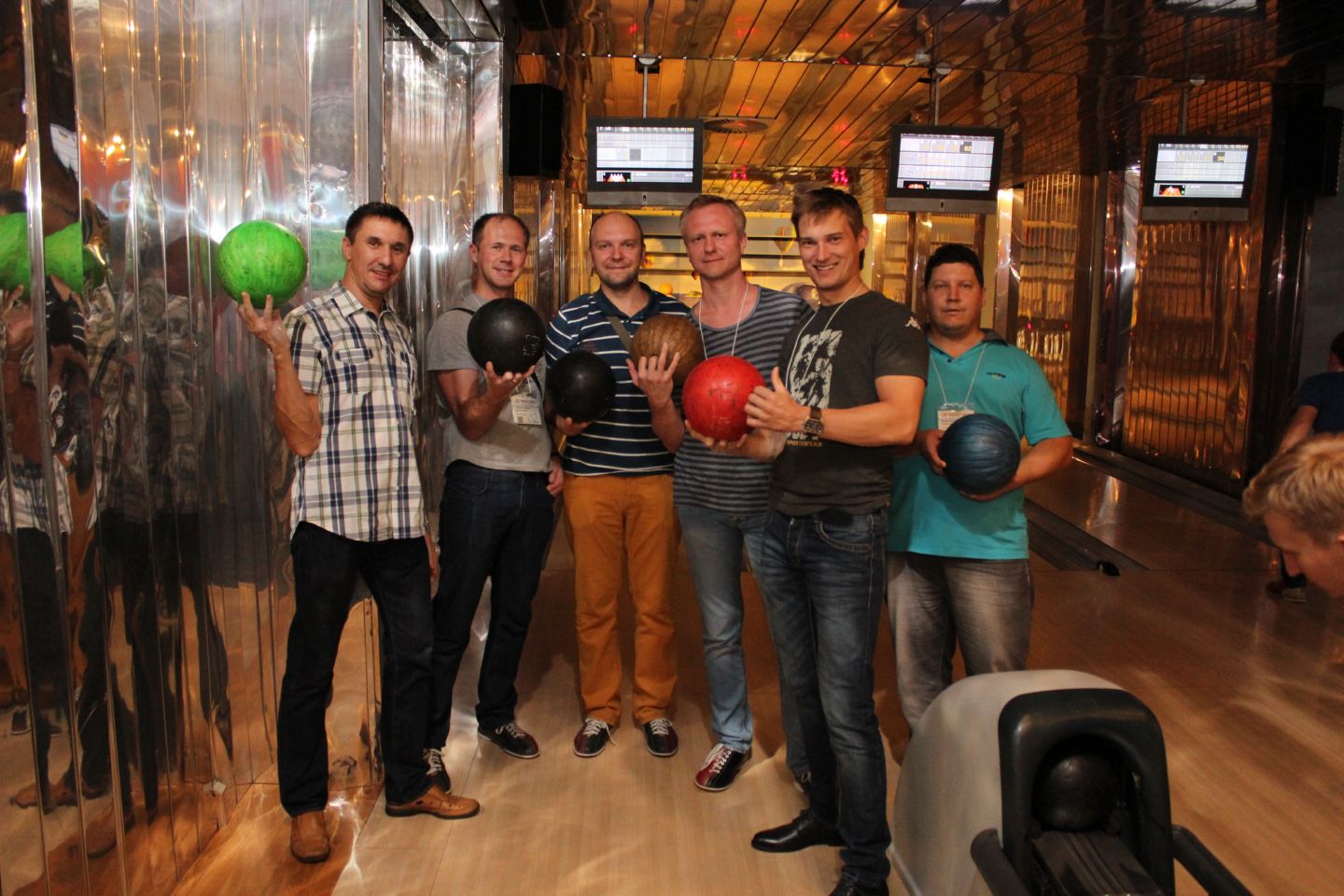
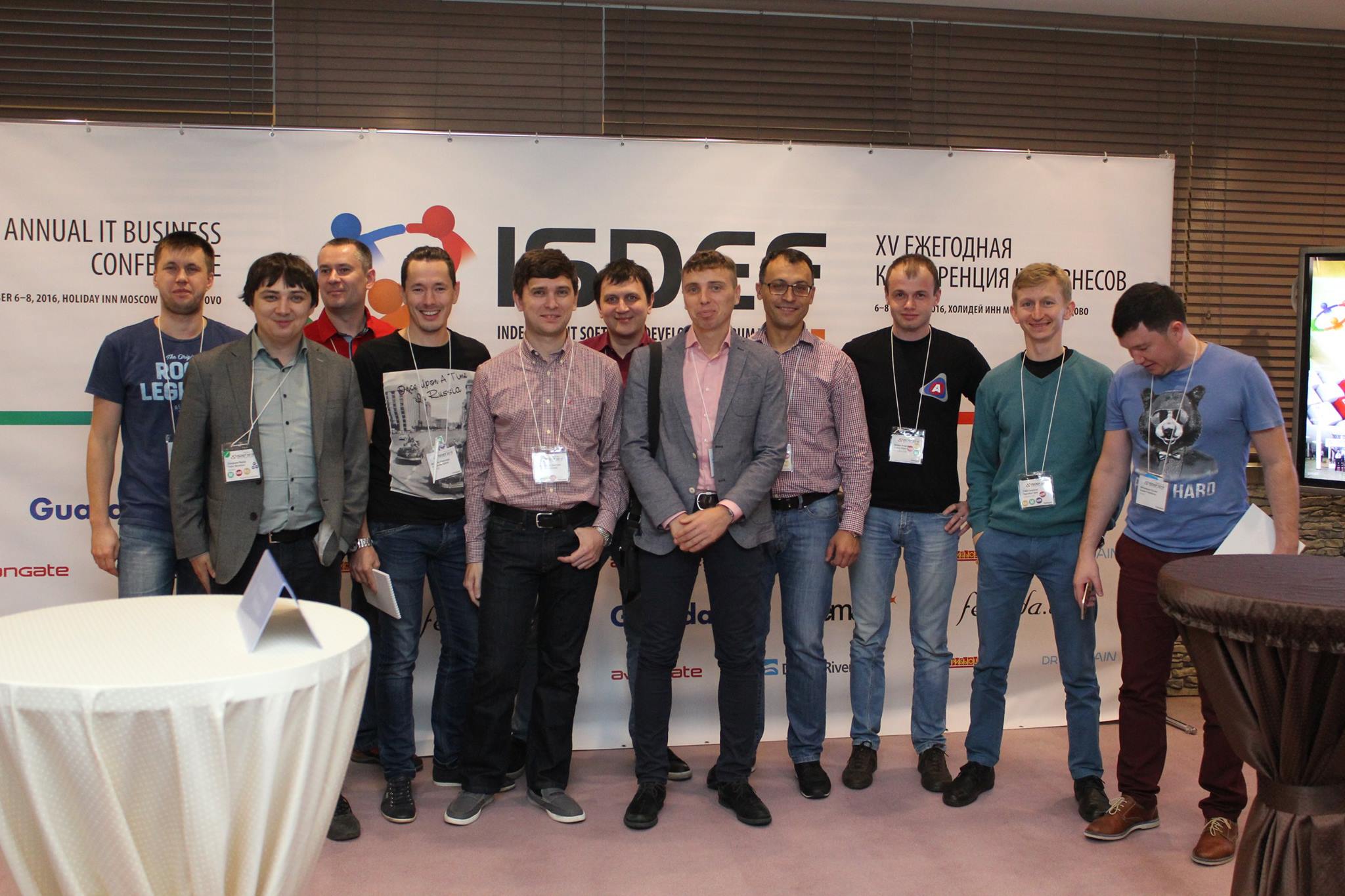
Julia Shuvalova (Stepik, Development Director) - 10 ways to use training for sales growth, promotion and IT product support. And of course - about lead generation (webinar capabilities, etc.)
Did you miss the cases? Evgeny Birchenko (Order Company, CIO ) and Alexey Savkin (BSC Designer, CEO) with case studies on how to find and involve the right partners for B2B sales of highly specialized software in local markets.

The association organizes a conference for its own contributions (annual fee is $ 150) and for sponsorship donations. Therefore, participation as a non-speaker is paid, which covers the cost of holding the conference. Unfortunately, we traditionally post videos of only some reports, when the speakers are not opposed. And we still see the main benefit in communication during 3 evenings before, between and after the reports.
Application for participation before 09.09 - for a total of $ 12,000 ($ 200), there are discounts on applications from one company. After this date, tickets will rise in price to a maximum of $ 18,000 ($ 300). You can apply on the conference promotion website , looking at the full list of speakers . Come on!
ISDEF is a top-notch IT business club with no formalities or superfluous pathos. 15 years ago, it began as a huge get-together of all grocery “software developers” in the autumn near Moscow, overgrown with “meat” of reports and masterclasses. People come to us for ideas to develop their business, especially for export, because here you can “hold for a button” other owners and tops who have already succeeded in their niche.

')
Three years ago we published an inspiring (at least, ourselves) post about what ISDEF is . Now tell you what will happen this fall.
(From the author: I personally arrived for the first time in 2008 as the commercial director of agnitum , vendor of Outpost security solutions, when Natalya Kasperskaya, then the general director of our main competitor, Kaspersky Lab, told us about working with partner sales channels abroad - how to enter the country on their hands and when to “squeeze.” This year, something similar in the modern context will be told by former LC representative for Spain and Portugal Hovhannes Mikhailov).
Sell your products! But how?
Many, especially former freelancers and current IT outsourcing companies, are moving away from the product development distance in the early stages, while others try to enlist a life-buoy from the outside in the form of grants, subsidies, and other accelerators. But is there enough knowledge? ISDEF solves the problem of “pumping” with knowledge and determination to “swim out”. The conference is focused on “self-funded startups” - on entrepreneurs who build their business not on strangers, but on their earned money. A community of 300 IT entrepreneurs together looking for solutions to tricky cases of moving into new markets, rejecting or introducing new technology platforms, and everyone is not averse to sharing their experience with others.
We have the majority of participants from the “grocery” IT companies, who imagine the process of development and marketing of the product, but there are enough “service workers” who either help the development of the products or themselves stare at what niche to bring their own (not “customized”). ") Development. There is an opinion that those who want to develop their business independently abroad simply have to travel to ISDEF in order to more easily solve the problems of growth - growth both from scratch and when scaling up a business.

So, the “products” of ISDEF successfully compete with Adobe (in the areas of electronic document management and distance learning), Symantec (in the field of information security), Oracle and 1C (in products for database developers, CRM and ERP), and other leaders in the classical niches of IT products; lead in new markets with “smart iron” platforms (IoT, medtech, fintech) ... “Swimming” in the “pool with sharks” is obviously not easy, but becoming a similar “shark” in going to world markets is doubly difficult, not relying on someone else's experience . Having a “grocery” IT business in Russia, in the EU, in America, in Asia is a risky path, because markets are changing rapidly, and trade in the IT sector is becoming more and more regulated.
That is why there will be almost no desk theorists at ISDEF 2017 (almost). If business growth opportunities are discussed in general terms, they immediately try on their situations. It discusses the features of marketing and sales of software, aspects of the relations of owners among themselves and with employees, international sales and their pitfalls - and involves both old-timers Habr and startups who have had a “pound of a choke” in world markets (for example, rapidly growing alconost , ITsumma and erlyvideo , more classic PVS-Studio and Bolide Software, see Andrey2008 and> bolide ), little-known dollar millionaires from among independent developers with niche solutions. Legal optimization issues receive a lot of attention, because it becomes key.

Each of the ISDEF sections is represented by a wide range of speakers with presentations on various topics. Some of them:
Business growth
- Dmitry Kalaev, FRIA , will share the experience of acceleration in the United States. The self-funded project of FRIA managed to light up in California. We find out what happened to the first test suite and the first projects;
- Evgenia Barchenko, GoTech.vc, will cover the topic of cooperation between start-ups and corporations and the potential of corporate accelerators.
Bonus successful case studies on the introduction of innovations in Russian startups.
Marketing and sales
- Evgeny Potapov (@eapotapov), a startup in California, will talk about the experience of scaling up a successful Russian business model in the US market. What comes out of it, what methods the company uses to adapt, what problems it faces and what costs it suffers.
New markets
- Nikolay Rusanov, iRidium mobile development director , will talk about the risks that came with the IOT market, and give examples of how Amazon Alexa, Siri and Google Home are used in real “smart” installations, how it affects the developers' business and user experience with smart systems.

IT market
- We hear about control over employees not for the first time, however, what is the difference between its components? Andrei Ignatov, Kickidler , will talk about the market of control of employees in general, about what changes are taking place inside of it, why it is. Andrew is aware of the situation in Russia and in the world, as well as development prospects. All who are interested in such systems are welcome!
Legal issues
- Dmitry Dubograev, Femida.US, will talk about the legal blunders of recent years: new innovative flights (courts / contracts / closure of channels), or what prevents to grow and develop. An empirical (non-professional) view of miscalculations in strategy, HR, finance, marketing and soft-skills.

Personal Relationships (People in Business)
- Wrong, that hurt: forward science. Many of us make mistakes, but do not know how to correct them. EvgeniyRyzhkov, general director of PVS-Studio, will tell you how his team stumbled before finding the right solution. Content marketing, a cool logo character, a cheap version of a product, publications from bloggers, contextual advertising - guess what worked and what failed?
Julia Shuvalova (Stepik, Development Director) - 10 ways to use training for sales growth, promotion and IT product support. And of course - about lead generation (webinar capabilities, etc.)
Did you miss the cases? Evgeny Birchenko (Order Company, CIO ) and Alexey Savkin (BSC Designer, CEO) with case studies on how to find and involve the right partners for B2B sales of highly specialized software in local markets.

And about the money
The association organizes a conference for its own contributions (annual fee is $ 150) and for sponsorship donations. Therefore, participation as a non-speaker is paid, which covers the cost of holding the conference. Unfortunately, we traditionally post videos of only some reports, when the speakers are not opposed. And we still see the main benefit in communication during 3 evenings before, between and after the reports.
Application for participation before 09.09 - for a total of $ 12,000 ($ 200), there are discounts on applications from one company. After this date, tickets will rise in price to a maximum of $ 18,000 ($ 300). You can apply on the conference promotion website , looking at the full list of speakers . Come on!
Source: https://habr.com/ru/post/337376/
All Articles